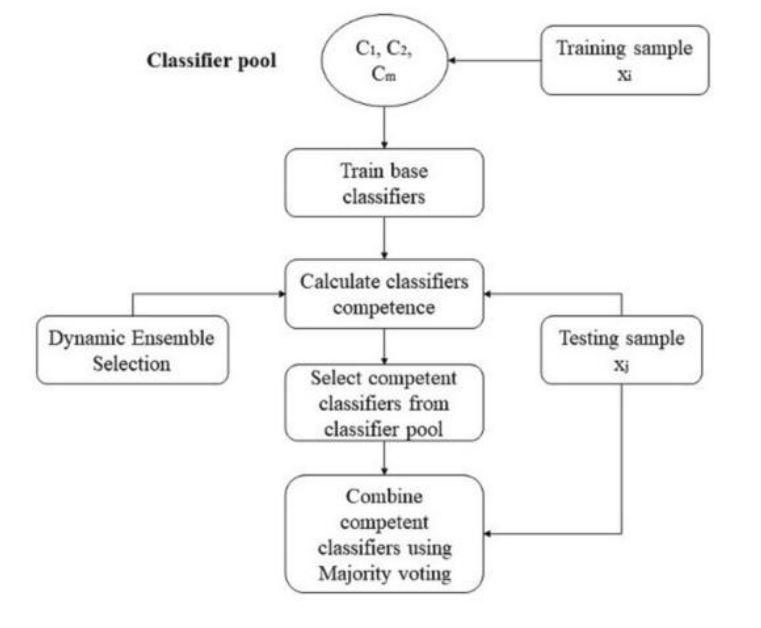Fraud Detection in Digital Payment Technologies Using Machine Learning
DOI:
https://doi.org/10.5281/zenodo.10926495References:
22Keywords:
Financial fraud, Machine learning, Dynamic integration selection, Double error measureAbstract
Data has become the banking industry's most valuable asset, not only helping banks attract more customers, increase the loyalty of existing customers, make more effective data-driven decisions, but also enhancing business capabilities, increasing operational efficiency, improving existing services, enhancing security, and generating more revenue through all of these actions, and more. This paper explores the application of machine learning and artificial intelligence techniques in fraud detection in the financial sector. By analyzing the characteristics and common scenarios of financial fraud, the accuracy and efficiency of fraud detection model are improved by using dynamic integrated selection and double error measurement. The experimental results show that the machine learning model performs well in financial fraud detection, providing financial institutions with a more reliable and secure transaction environment, protecting the interests of customers and the stability of the financial market.
References
Yu, Liqiang, et al. "Stochastic Analysis of Touch-Tone Frequency Recognition in Two-Way Radio Systems for Dialed Telephone Number Identification." arXiv preprint arXiv:2403.15418 (2024).
Xu, Xiaonan, et al. "AI Empowered of Advancements in Microbial and Tumor Cell Image Labeling for Enhanced Medical Insights." Journal of Theory and Practice of Engineering Science 4.03 (2024): 21-27.
Che, Chang, et al. "Enhancing Multimodal Understanding with CLIP-Based Image-to-Text Transformation." Proceedings of the 2023 6th International Conference on Big Data Technologies. 2023.
Xu, Xiaonan, et al. "Comprehensive Implementation of TextCNN for Enhanced Collaboration between Natural Language Processing and System Recommendation." arXiv preprint arXiv:2403.09718 (2024).
Zeng, Q., Sun, W., Xu, J., Wan, W., & Pan, L. (2024). Machine Learning-Based Medical Imaging Detection and Diagnostic Assistance. International Journal of Computer Science and Information Technology, 2(1), 36-44.
Che, Chang, et al. "Deep learning for precise robot position prediction in logistics." Journal of Theory and Practice of Engineering Science 3.10 (2023): 36-41.
Wu, Jiang, et al. "Case Study of Next-Generation Artificial Intelligence in Medical Image Diagnosis Based on Cloud Computing." Journal of Theory and Practice of Engineering Science 4.02 (2024): 66-73.
Shen, Xinyu, et al. "Biology-based AI Predicts T-cell Receptor Antigen Binding Specificity." Academic Journal of Science and Technology 10.1 (2024): 23-27.
Su, G., Wang, J., Xu, X., Wang, Y., & Wang, C. (2024). The Utilization of Homomorphic Encryption Technology Grounded on Artificial Intelligence for Privacy Preservation. International Journal of Computer Science and Information Technology, 2(1), 52-58.
Che, Chang, et al. "Advancing Cancer Document Classification with R andom Forest." Academic Journal of Science and Technology 8.1 (2023): 278-280.
Cheng, Q., Gong, Y., Qin, Y., Ao, X., & Li, Z. (2024). Secure Digital Asset Transactions: Integrating Distributed Ledger Technology with Safe AI Mechanisms. Academic Journal of Science and Technology, 9(3), 156-161.
Zhou, Hong, et al. "Application of Conversational Intelligent Reporting System Based on Artificial Intelligence and Large Language Models." Journal of Theory and Practice of Engineering Science 4.03 (2024): 176-182.
Wang, Yufu, et al. "Cloud Computing for Large-Scale Resource Computation and Storage in Machine Learning." Journal of Theory and Practice of Engineering Science 4.03 (2024).
Su, Guangze, et al. "The Utilization of Homomorphic Encryption Technology Grounded on Artificial Intelligence for Privacy Preservation." International Journal of Computer Science and Information Technology 2.1 (2024): 52-58.
Lin, Luqi, et al. "AI-driven Protein Engineering for DNA Sequence Modification." Journal of Theory and Practice of Engineering Science 4.03 (2024): 183-190.
Cai, Guoqing, et al. "Deep Learning-Based Recognition and Visualization of Human Motion Behavior." Academic Journal of Science and Technology 10.1 (2024): 50-55.
Zheng, Haotian, et al. "Medication Recommendation System Based on Natural Language Processing for Patient Emotion Analysis." Academic Journal of Science and Technology 10.1 (2024): 62-68.
Wang, Hongbo, et al. "Intelligent Security Detection and Defense in Operating Systems Based on Deep Learning." International Journal of Computer Science and Information Technology 2.1 (2024): 359-367.
Huang, Zengyi, et al. "Research on Generative Artificial Intelligence for Virtual Financial Robo-Advisor." Academic Journal of Science and Technology 10.1 (2024): 74-80.
Xu, Jinxin, et al. "Predict and Optimize Financial Services Risk Using AI-driven Technology." Academic Journal of Science and Technology 10.1 (2024): 299-304.
Huang, Zengyi, et al. "Application of Machine Learning-Based K-Means Clustering for Financial Fraud Detection." Academic Journal of Science and Technology 10.1 (2024): 33-39.
Huang, Jiaxin, et al. "Enhancing Essay Scoring with Adversarial Weights Perturbation and Metric-specific AttentionPooling." 2023 International Conference on Information Network and Computer Communications (INCC). IEEE, 2023.

Downloads
Published
How to Cite
Issue
Section
License
Copyright (c) 2024 Copyright reserved by the author.

This work is licensed under a Creative Commons Attribution 4.0 International License.

















